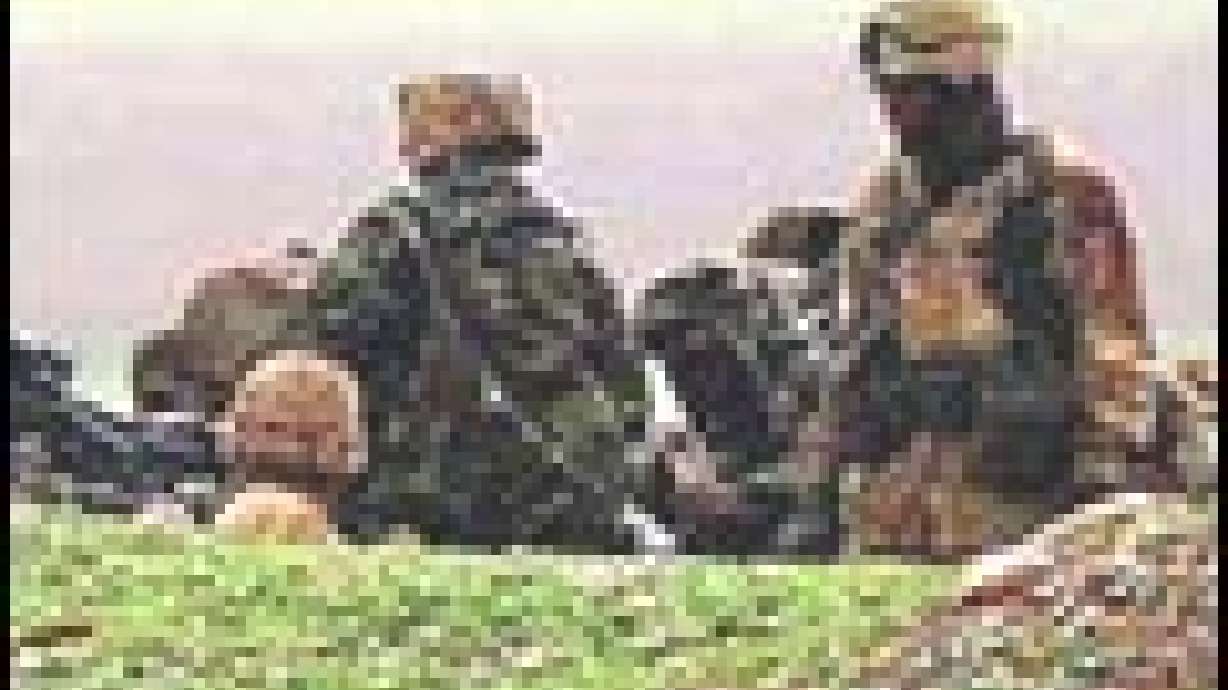Estimated read time: 3-4 minutes
This archived news story is available only for your personal, non-commercial use. Information in the story may be outdated or superseded by additional information. Reading or replaying the story in its archived form does not constitute a republication of the story.
BASHUR, Iraq (AP) -- Denied rights to invade by land from Turkey, the U.S. military instead parachuted about 1,000 Army troops into Kurdish-held northern Iraq in a dramatic nighttime operation that opened another front against Saddam Hussein's regime.
It was one of the biggest paratroop drops in decades and put in place the first large coalition ground force in the north.
The soldiers, including elite Army Rangers, jumped out of low-flying C-17 transport planes under cover of darkness Wednesday and secured a snow-dusted airfield, which will be used to bring in supplies and support personnel.
Three helicopters, flying with nearly all their lights out, could also be seen landing.
U.S. warplanes provided cover, attacking Iraqi ground troops, bunkers, artillery and other targets. But the paratroopers did not come under fire.
Around dawn Thursday, strikes resumed, with a massive explosion just outside the Kurdish zone close to the village of Kalak. Warplanes pounded forward Iraqi positions in the hills overlooking Chamchamal, 22 miles east of the key oil city of Kirkuk.
Kurdish fighters also closed off a highway and roads near the airstrip.
Up until now, only coalition warplanes and small groups of U.S. Special Forces were operating in the region, working with anti-Saddam Kurdish fighters.
The Pentagon had hoped to have the Army's 4th Infantry Division invade Iraq from the north while the main U.S. assault force moved on Baghdad from the south. But Turkey balked at allowing up to 62,000 U.S. troops to use Turkish territory.
With Wednesday's airdrop, the military instead shifted to a smaller, lighter force, drawn from the Army's 173rd Airborne Brigade, based in Vicenza, Italy.
Lt. Col. Thomas Collins, a spokesman for the Army's Southern European Task Force, refused to say whether the 173rd went directly from Italy into Iraq or took a different route. Italy's parliament voted this month to allow coalition forces to use Italian air space and military bases -- but not for direct attacks on Iraq.
It was not clear if the deployment would violate the terms of the country's involvement, but the matter immediately sparked controversy in Italy, where there is a strong anti-war movement.
The town of Bashur is about 30 miles south of the Turkish border. The airfield's 6,700-foot runway is long enough to land military cargo planes.
The key targets in northern Iraq include the oil fields around the cities of Mosul and Kirkuk, and Tikrit, Saddam's hometown and the tribal center for most of his inner circle. Members of Iraq's Republican Guard have also been posted there.
Another key mission for the 173rd could be to keep order in northern Iraq, which is controlled by Kurdish factions but also includes several splinter organizations and is a base for an al-Qaida-linked Islamic militant group.
Turkey has said it may send troops into northern Iraq to prevent refugees from moving north -- an idea U.S. officials vehemently oppose, for fear of friendly-fire incidents and clashes between Turks and Iraqi Kurds.
The Kurdish-run enclave in northern Iraq has been beyond the control of the Baghdad government since the establishment of a no-fly zone following the 1991 Gulf War.
(Copyright 2003 by The Associated Press. All Rights Reserved.)









